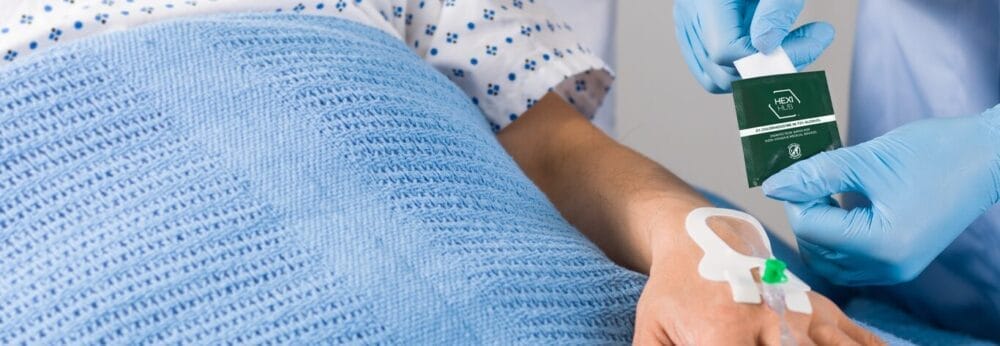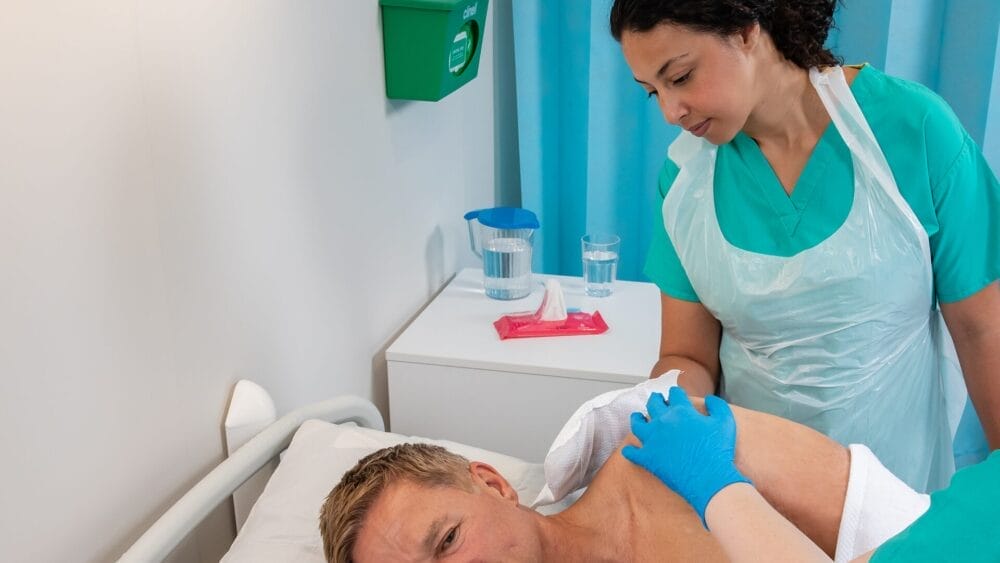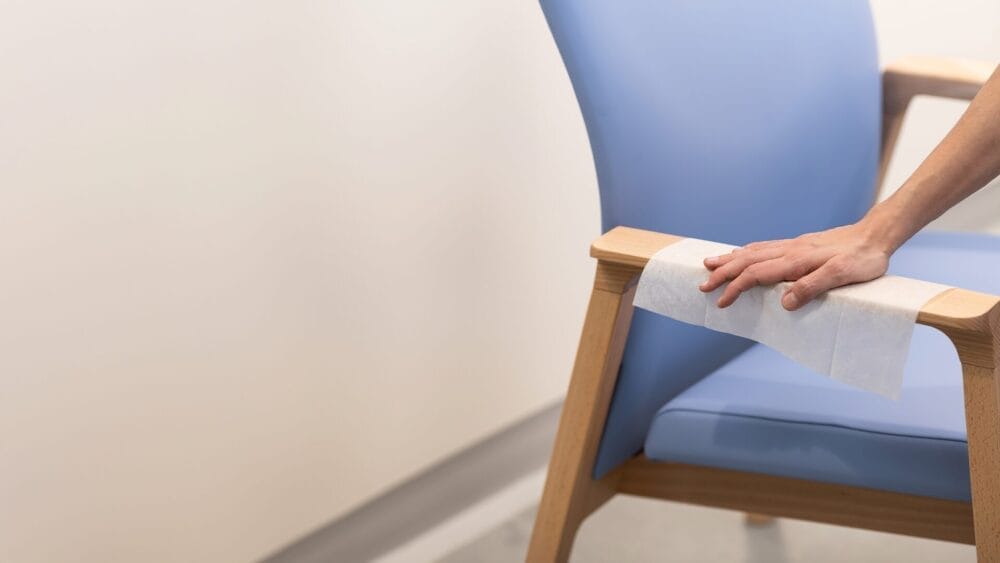Posted
12th May 2017
Research

A number of key studies were published at ECCMID 2017, providing further evidence of the utility of chlorhexidine for reducing the risk of HCAI.
A study from South Korea evaluated the impact of universal skin antisepsis using 2% chlorhexidine gluconate (CHG) washcloths in reducing MRSA acquisitions and bloodstream infections. Following a 12 month baseline period, a two-year intervention using CHG was following by a one-year intervention using CHG plus mupirocin. The study showed a significant impact of CHG bathing in reducing MRSA acquisition, and also an incremental benefit of adding nasal mupirocin to the decolonisatoin regieme. Whilst it is useful to have more data that mupirocin and CHG combined reduces the risk of MRSA, it may be that a ‘screen and treat’ approach is the most balanced way forward for mupirocin treatment, because of the risk of resistance, which seems to be less of a risk for CHG.
A bundle of interventions was tested in reducing the spread of CRE and ESBL Gram-negative bacteria in an Italian organ transplant unit. The bundle included screening, isolation, CHG bathing for known carriers, hand hygiene, and staff education. Screening and isolation was performed for CRE and ESBL, whereas the other interventions were implemented for CRE only. A sharply increasing rate of CRE was reversed, and returned below baseline levels following the intervention. The ESBL rate was static before the intervention, but decreased significantly in response. This shows that a intervention bundle aimed primarily at CRE also had some impact on ESBL, which was a bonus!
Finally, a large randomised controlled trial of 2% CHG / alcohol vs. 5% povidone-iodine / alcohol showed that there was no significant difference in the blood culture contamination rate following blood culture collection. This reinforces findings from other studies.
So, some evidence that chlorhexidine represents a versatile and effective antiseptic biocide!
SHARE THIS ARTICLE
Tags
Latest News
Embracing sustainability and cost savings: The journey of Clinell Indicator Notes to paper-based solutions
At GAMA Healthcare, we’ve always prided ourselves on being at…
Introducing HEXI HUB: A seamless transition in our product line
We’re pleased to announce an update to our product offering…
Innovative solutions for tackling Carbapenemase-producing Enterobacteriaceae (CPE) at King’s College Hospitals
King’s College Hospital NHS Foundation Trust, one of London’s largest…
Gloves Off: reducing unnecessary plastic waste during environmental cleaning and disinfection
In this blog, Dr Phil Norville discusses the momentum-gaining ‘Gloves…




